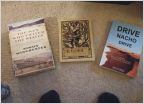-
Welcome to Tacoma World!
You are currently viewing as a guest! To get full-access, you need to register for a FREE account.
As a registered member, you’ll be able to:- Participate in all Tacoma discussion topics
- Communicate privately with other Tacoma owners from around the world
- Post your own photos in our Members Gallery
- Access all special features of the site
Obituary: Jean Vanier
Discussion in 'Off-Topic Discussion' started by boynoyce, May 18, 2019.


 The EDC Thread
The EDC Thread Police Scanners
Police Scanners Recommend me a tactical watch
Recommend me a tactical watch Acorns - how to pick them up by the ton
Acorns - how to pick them up by the ton 2024 OFFICIAL TW SECRET SANTA - WISHLIST THREAD!
2024 OFFICIAL TW SECRET SANTA - WISHLIST THREAD! 2016 Christmas Gifts and BS
2016 Christmas Gifts and BS











































































